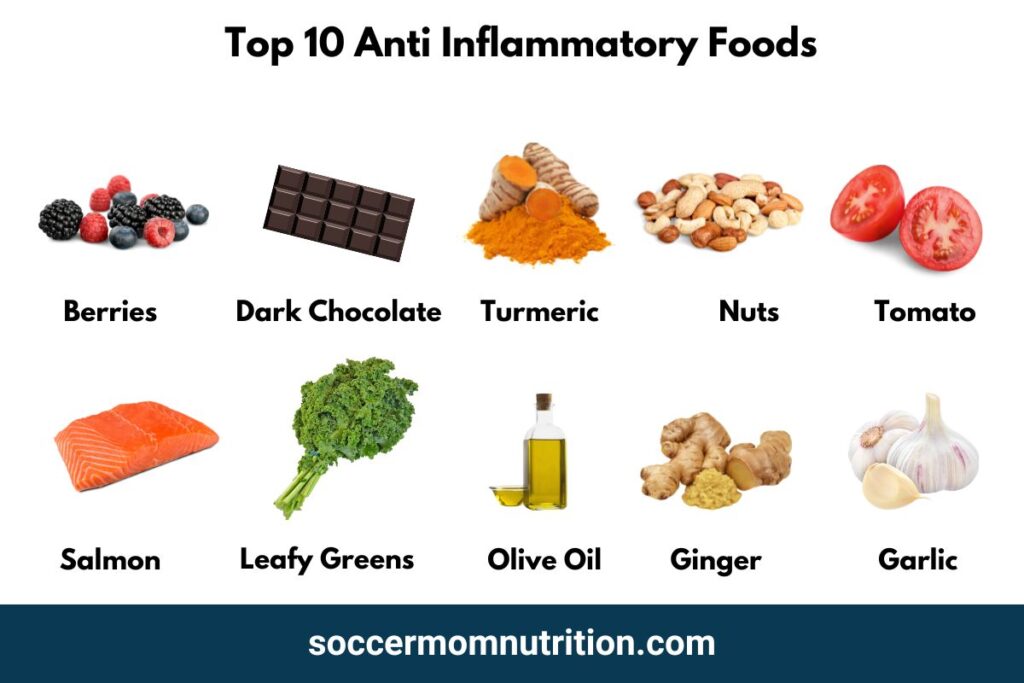Nutrition and Athlete Mental Health: Key Nutrients for Every Athlete
Nutrition and athlete mental health are closely linked. What you eat can have a significant impact on your mood, cognition and behavior.
It can also affect your physical performance, since nutrition plays a key role in energy production, muscle recovery and injury prevention.
In this blog post, we will explore some of the key nutrients that support nutrition and athlete mental health and how to include them in your diet.

Omega-3 fatty acids: boost your brain and reduce inflammation
Omega-3 fatty acids are essential fats that your body cannot make on its own. You have to get them from food.
You can get omega-3s in oily fish, such as salmon, sardines, and mackerel, as well as in flaxseeds, chia seeds, walnuts and algae.
They also help your brain chemicals that regulate your mood and motivation. Studies have shown that omega-3s can help you feel less depressed, anxious, or angry. They can also help you concentrate and focus on learning. (1)
Omega-3s are also beneficial for athletic performance. They help your muscles feel less sore after exercise. Omega-3s also help your blood flow and bring more oxygen to your muscles.
Tips for improving your intake of omega-3 fatty acids
- Eat at least two servings of oily fish per week
- Choose plant-based sources of omega-3s such as flaxseeds, chia seeds and walnuts

Probiotics: balance your gut and brain
Probiotics are good bacteria that live in your gut and help digest food, produce vitamins and support your immune system. They also communicate with your brain via the gut-brain axis, that connects your digestive system to your brain. (2)
Additionally, probiotics can influence your mood, cognitive focus and behavior by affecting the production and function of brain chemicals, called neurotransmitters, such as serotonin, dopamine and GABA.
They can also reduce inflammation and oxidative stress in the brain, which can affect mental health.
Probiotics are found in fermented foods, such as yogurt, kefir, kimchi and sauerkraut.
Additionally, probiotics can improve your body performance by helping you use the nutrients from food better. They can also boost your immunity, reduce infections and promote recovery from exercise-induced stress.
Tips for improving your intake of probiotics
- Eat at least one serving of fermented foods per day
- Choose products that contain live and active cultures
Vitamin D: brighten your mood and strengthen your bones
Vitamin D is essential for overall health, including brain function. Low levels of vitamin D have been linked to depression and seasonal affective disorder (SAD) by affecting the synthesis and metabolism of serotonin and other mood-related hormones .
You can get vitamin D from sunlight exposure, fatty fish (salmon, tuna, sardines), egg yolk, mushroom and fortified foods such as milk and orange juice.
Furthermore, vitamin D is important for athletic performance by supporting bone health, muscle function, and immune system. Vitamin D deficiency can increase the risk of stress fractures, muscle weakness, and infections.
Supplementing with vitamin D might improve muscle strength, power and endurance.
Increase your vitamin D intake by following these suggestions
- Aim to incorporate fish into your meals at least a few times a week
- Choose foods fortified with vitamin D, including milk, orange juice, breakfast cereals
- Include eggs in your diet at snacks and meals
- Enjoy time in the sun, making sure to protect your skin
B vitamins: power your brain and muscles
Low levels of B vitamins have been linked to depression and cognitive decline by affecting brain chemicals such as serotonin, dopamine, norepinephrine and GABA.
Foods rich in B vitamins include whole grains (oats, brown rice, quinoa), leafy greens (spinach, kale, broccoli), eggs and meat (chicken, beef, turkey).
You need to eat a well balanced diet to get B vitamins that are essential for energy production, muscle contraction and oxygen transport.
A deficiency in B vitamins can impact your exercise performance by reducing aerobic capacity, muscle strength and endurance.
Improve your intake of B vitamins by following these tips
- Choose whole grains more often
- Eat at least one serving of leafy greens per day
- Pick eggs or meat as a source of protein
Water: hydrate your brain and body
Dehydration can affect brain function and mood by impairing cognitive performance, increasing stress hormones, and altering blood flow to the brain.
You should know the symptoms of dehydration so you can recognize them before you become too dehydrated.
It’s important to drink enough water to stay hydrated and support brain function.
The recommended amount of water intake varies depending on your age, weight, activity level and climate, but a general baseline guideline is to drink at least eight glasses of water per day.
Athletes should use a sweat calculator to fine tune the amount of fluids you need to ensure adequate hydration.
Water is also vital for athletic performance by regulating body temperature, blood pressure and heart rate. Dehydration can impair exercise performance by reducing aerobic capacity, muscle strength, ability to focus and endurance.
Being adequately hydrated can improve exercise performance by preventing overheating, maintaining fluid balance and preventing cramps.
Improve your intake of water
- Hydrate before, during and after exercise
- Drink water with every meal and snack
- Carry a water bottle with you and sip throughout the day
- Add some flavor to your water with lemon, cucumber, mint or berries
Antioxidants: protect your brain and muscles from damage
Antioxidants protect the brain from damage caused by free radicals, substances that protect the brain and muscles from damage caused by exercise-induced stress.
Free radicals can increase inflammation and stress in the brain, which can impact mental health. (3)
Antioxidants can also protect the muscles from damage caused by exercise-induced stress. They can reduce muscle soreness, inflammation and fatigue. Also, antioxidants can also enhance muscle recovery, adaptation and performance.
Foods rich in antioxidants include berries (blueberries, strawberries, raspberries), tart cherry juice, dark chocolate and green tea.
Tips to improve your intake of antioxidants:
- Eat at least one serving of berries per day
- Enjoy a small piece of dark chocolate or a cup of green tea as a treat
- Drink tart cherry juice as a recovery drink
- Add tomatoes and spices to your salads, soups and dishes
Magnesium: calm your nerves and muscles
Magnesium is important for mood regulation and can help reduce symptoms of depression and anxiety by changing your brain chemicals, such as serotonin, dopamine, and glutamate.
It can also reduce stress hormones such as cortisol and adrenaline.
Magnesium is also essential for muscle function and relaxation. Magnesium deficiency can cause muscle cramps or spasms, twitches and weakness.
Foods rich in magnesium include nuts (almonds, cashews, pistachios), legumes (beans, lentils, peas), whole grains (oats, brown rice, quinoa) and leafy greens (spinach, kale, swiss chard).
Tips for improving your intake of magnesium:
- Add a handful of nuts to your yogurt and granola
- Eat at least two servings of whole grains per day
- Increase servings of leafy greens by adding to
Underfueling and mental health impact
While athletes often prioritize their physical training and nutrition, one critical aspect that occasionally goes unnoticed is the risk of underfueling.
Underfueling occurs when you don’t eat enough calories to support your training demands and overall energy expenditure.
What you may not realize is that this nutritional deficit can have a profound impact on mental health, potentially leading to a cascade of negative consequences.
The symptoms of underfueling can impact both mental health and sports performance. These symptoms include:
- Fatigue
- Poor recovery
- Low mood
- Hormonal imbalances
- Low bone mineral density
- Gastrointestinal problems.
- Reduced immune function
- Decreased cognitive function
- Impaired thermoregulation
- Reduced growth and development
It’s important to recognize these symptoms and to ensure you work with a registered sports dietitian nutritionist and healthcare provider to help you navigate these symptoms.
Conclusion
Nutrition and athlete mental health are closely linked. By eating a balanced and varied diet that includes omega-3 fatty acids, probiotics, vitamin D, B vitamins, water, antioxidants and magnesium, you can support your mood and mental well-being.
You can also improve your physical performance, as nutrition plays a key role in energy production, muscle recovery, and injury prevention.
It’s recommended to work with a sports nutritionist and/or a mental health professional for more personalized advice and guidance.
Additionally, when you choose to use a supplement, you’ll want to ensure you are using a supplement that is third party tested.
Stephanie Magill, MS, RD, CD, FAND has over 22 years of experience in public health and nutrition. As a performance registered dietitian nutritionist, Stephanie specializes in sports nutrition and provides simple and actionable information so that athletes can be well fueled for high performance on and off the field. Stephanie has a Master’s Degree in Nutrition and is a Fellow of the Academy of Nutrition and Dietetics.

